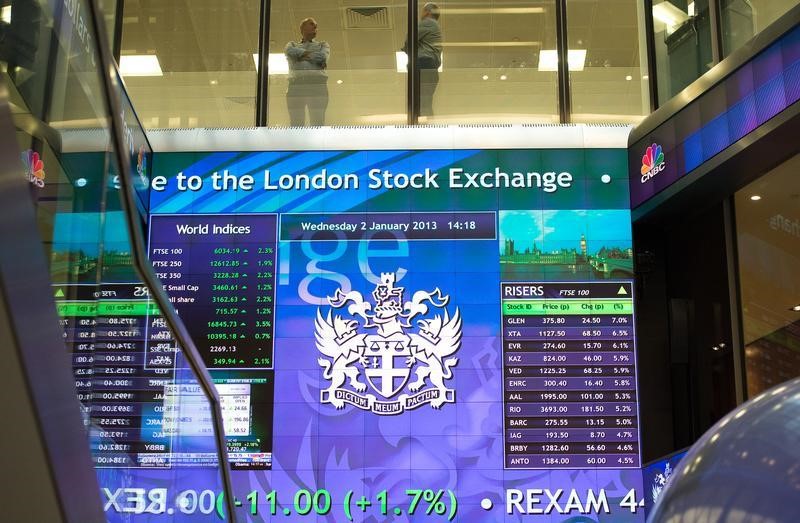By Atul Prakash
LONDON (Reuters) - The FTSE extended gains on Monday, with miners leading the way after China, the world's top metals consumer and number two economy, cut interest rates at the weekend to spur growth.
The blue-chip FTSE 100 index was up 0.2 percent at 7,058.16 points by 1024 GMT after surging 2.3 percent on Friday following the Conservatives' unexpected national election victory. The index stayed within touching distance of a record high of 7,122.74 points set last month.
Shares in basic resources companies BHP Billiton (L:BLT), Anglo American (L:AAL), Rio Tinto (L:RIO) and Glencore (L:GLEN) rose 1.9 to 2.4 percent.
The UK mining index (FTNMX1770) rose 1.9 percent, the top sectoral gainer, after China cut rates for the third time in six months in a bid to lower companies' borrowing costs and revive a sputtering economy that is headed for its worst year in a quarter of a century.
"We are seeing a knee-jerk reaction to China rate cut, but I don't think the bounce in mining shares is sustainable," Peter Dixon, equity strategist at Commerzbank (XETRA:CBKG), said.
"Ultimately what matters is the demand for metals and I can't see how the Chinese rate cut is going to make any material difference. There has been a lot of investment to increase capacity over the past years and in many mining areas we are now struggling with over-capacities."
The mining index is up just 3.5 percent this year, against an 8 percent rise for the benchmark FTSE 100 index.
Energy shares were also in demand, with the UK Oil and Gas index (FTNMX0530) rising 0.6 percent, tracking a rise in crude oil prices.
Among some significant movers, Sage Group (L:SGE) rose 2.2 percent to 555.79 pence after Goldman Sachs raised its price target for the stock to 565 pence from 540 pence.
Aberdeen Asset Management (L:ADN) fell 1.5 percent to 445 pence after Societe Generale (PARIS:SOGN) cut its stance on the stock to "hold" from "buy" and trimmed its target price to 485 pence from 490 pence.

On the macroeconomic front, the Bank of England announces its first monetary policy decision under the new Conservative government on Monday. It is unlikely to throw in any surprises and is widely expected to keep interest rates unchanged at record lows.